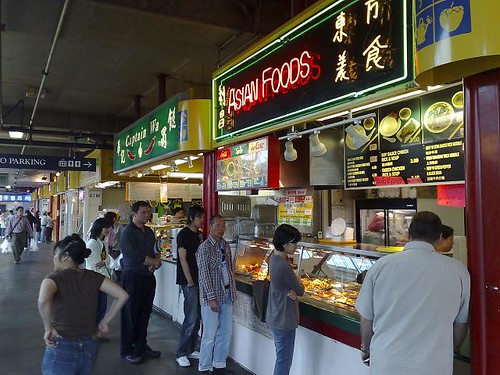Ms. Bravo-Bhasin has a go at culture shock

As I prepare to write up a first impression of Singapore, I wanted to draw some attention to an adept describing of culture shock. Travel novels are often the literature of choice for those researching a new country (I recommend works such as Paul Theroux’s Dark Star Safari or Bruce Chatwin’s In Patagonia), but they are usually too specific - and too long. When it comes to succinctly capturing the psychological tugs of culture shock, Marión Bravo-Bhasin pegs it.
The book in which these few paragraphs appear is actually a series – appropriately named Culture Shock!; Ms. Bravo-Bhasin writes the installment on Singapore. But the feelings she relates in five stages could apply from Columbia to Cambodia; Juneau to Jakarta.
Culture Shock
Stage one: the honeymoon
Everything is new and exciting. The best thing to do is learn to observe with curiosity and interest; learn to focus on the similarities and how we are really very much alike.
Stage two: initial confrontation
Difficult times and crises in daily life begin to occur as the focus shifts from the similarities to the differences, which are suddenly everywhere! Communication may be a problem and feelings of dissatisfaction start to creep in. You may even feel discontent, impatient, angry, sad, and generally a little incompetent as you try your best to cope.
Stage three: Gradual Adjustment
You begin to gain some insight and understanding of the new culture, and a feeling of pleasure and sense of humor may be experienced. The environment is more familiar and a feeling of wanting-to-belong begins to take over. You start to evaluate and compare the old ways and the new ways, and may encounter some confusion over your own identity as a result.
Stage four: Adaptation
A greater integration into the new culture occurs and you start to get solid feelings of belonging and ease. There is increased enjoyment in new customs and ways of doing and saying things. It becomes clear that the new culture has good and bad things to offer. You then start to realize that there will be things you will miss when you return home.
Stage five: re-entry shock
Moving back to one’s country of origin has new consequences and you may find that things are no longer the same (because of course, you are no longer the same).
Copyright © 2006 Marshall Cavendish International (Asia) Private LimitedNow, with a staggered start, Kate and I had both made it through the list in Germany over the course of several years. Before I go into any detail about Singapore, I’ll just say we are already straddling stages one and two.



